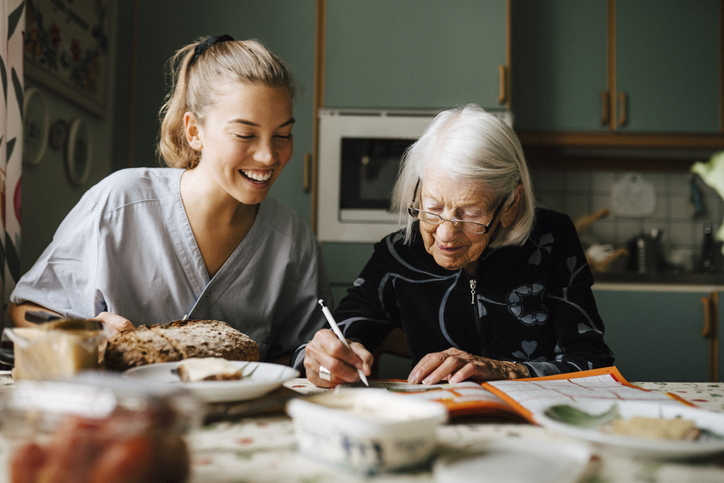How you care for a loved one being treated for primary biliary cholangitis (PBC) will depend on the stage of their disease and the symptom burden they face.
PBC is a rare chronic autoimmune liver disease that progressively destroys the bile ducts within the liver. As a result, bile builds up in the liver, damaging liver function and leading to fibrosis and cirrhosis. In some patients with PBC, the disease progresses to liver failure and liver transplantation. PBC mainly affects women (90% of cases) aged 35 to 55 years. The cause of PBC is unknown and there is no cure, with treatment focused on slowing disease progression and managing symptoms. It is not alcohol-related, but risk factors for PBC include genetic and environmental factors.
The most common symptoms of PBC are fatigue and pruritus (itching of the skin), followed by brain fog, abdominal pain, joint pain and jaundice. The severity of symptoms can vary dramatically from person to person, with some people with PBC experiencing no symptoms at all for a number of years.
Learn more about helpful links and resources for PBC
Caring for a loved one with PBC
There are four stages of PBC. As the disease progresses, symptoms have a greater effect on quality of life, and your loved one will require more support. Today, PBC is diagnosed earlier than it was in the past, allowing for early treatment and better outcomes for patients and their families.
In the early stages of the disease, people with PBC are often asymptomatic and can live relatively normal lives for about 10-15 years. This stage requires minimal specialized care. However, a healthy diet and lifestyle are essential to successfully living with PBC, and stress can make the symptoms worse. Your loved one may need help keeping up with a healthier lifestyle, especially if it requires large changes in their routine.
Once symptoms worsen, quality of life and mental health suffer. The chronic lack of sleep and incessant itching can lead to depression, social isolation and emotional distress. Techniques such as avoiding synthetic or woolen clothing, taking cold baths or showers, using moisturizing creams with menthol can help relieve the intensity of pruritus, but be difficult to manage the symptom burden alone.
Available resources
In addition to helping your loved one manage PBC symptoms, it is important to provide moral support in managing the anxiety of living with a progressive disease that has no cure, apart from a liver transplant in the case of liver failure. Staying optimistic without knowing how your loved one’s PBC will progress is not easy, but your support may make a big difference to their daily struggle.
There are also various support groups and resources you can utilize as a PBC patient or caregiver. These groups often provide financial and emotional support to families affected by the disease, and they can also provide a way for those who are struggling with the disease to connect with others who can relate to them.

